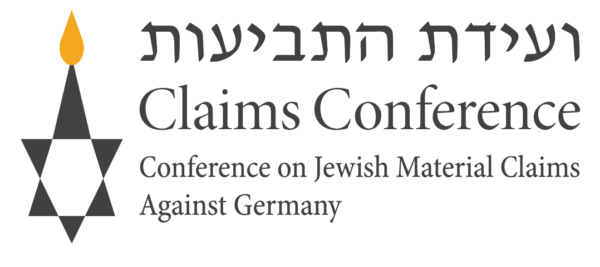In Breakthrough, Claims Conference Secures $250 Million from Germany for Additional 6,000 Holocaust Survivors Worldwide
Claims Conference in the Media | Press Inquiries | Publications | Videos | Updates
This post is for historical informational purposes only. Please do not refer to this post for information pertaining to current Claims Conference programs. Visit What We Do for current program guidelines and information. Thank you.
September 3, 2007
In Breakthrough, Claims Conference Secures $250 Million from Germany for Additional 6,000 Holocaust Survivors Worldwide
In a breakthrough for Holocaust survivors, the Claims Conference has successfully obtained a major revision in its pension program that will result in an estimated $250 million in payments over the next 10 years to an additional 6,000 survivors worldwide. The shift came following months of negotiations with the German Ministry of Finance, which will provide the funding for payments to those who are eligible.
The additional payments will be from the Claims Conference Article 2 Fund pension program. At present, as specified by German government criteria, the annual net income of an applicant may not exceed the local currency equivalent of US $16,000, after taxes. The income limit is slightly different for applicants residing permanently in the Federal Republic of Germany. The relevant income limit for residents of Germany and other European countries can be obtained from the Claims Conference office in Germany. The relevant income limit for residents of Israel is available on the Claims Conference Hebrew website. Due to Claims Conference negotiations, many benefits paid to elderly survivors will no longer count toward that income limit. With 51,000 survivors currently receiving Article 2 payments, this will lead to a more than 10 percent increase in the number of people who will now qualify for payments.
These negotiations established that as of October 1, 2007, all old age pensions — including governmental pensions, social security payments, occupational pensions and retirement plans — as well as pensions awarded for a reduction in earning capacity, industrial injury, occupational disease, and loss of life, or any comparable payments will not be counted towards calculation of the income limit, effectively granting payments to thousands more survivors. In addition, only the net income of the applicant will be considered, and not the income of his or her spouse, changing the previous rule.
Specific details (including which payments constitute comparable payments and limitations regarding assets of the applicant) are still being discussed with the German Ministry of Finance.
These changes reflect the long-standing Claims Conference position that compensation payments, which recognize Nazi persecution and suffering, should not be based on income criteria and should be paid irrespective of financial need. In previous negotiations, the Claims Conference had obtained the exclusion of social security payments from the computation of income for persons age 70 and older who met all other fund criteria.
The Claims Conference has implemented an international outreach campaign to inform survivors of these major changes in the program.
Persons currently receiving a monthly pension under the German Federal Indemnification Law (BEG) or a pension from the Israeli Ministry of Finance under the Israeli Nazi Persecutions Disabled Persons Law 5717-1957 cannot also receive a pension from the Article 2 Fund.
Eligibility for the Article 2 Fund is determined by the German government and is also based on a survivor’s persecution history, including incarceration in certain camps or ghettos, forced labor, and time in hiding or living under false identity. Click here for full eligibility criteria.
Claims Conference Article 2 Fund
The Article 2 Fund has paid more than $2 billion to more than 73,000 Holocaust survivors since it was established in 1992 through negotiations with the German government. Monthly payments are €270 (approximately $320).
When the Article 2 Fund was established, the German government agreed to pay only 25,000 Holocaust survivors. Due to Claims Conference annual negotiations with the Ministry of Finance to liberalize eligibility criteria, including the recognition of incarceration in additional camps and work battalions, more than 96,000 survivors have been approved to date for monthly pension payments from the Article 2 Fund and the related Central and Eastern European Fund.
Open Issues
Despite recent successes in liberalizing certain criteria for the Hardship, Article 2 and CEE Funds, open issues remain, and the Claims Conference continues to fight for inclusion of Holocaust survivors who, among others:
- Were in forced military labor battalions and in concentration camps not currently recognized as such by Germany;
- Were subjected to persecution for periods of time less than currently stipulated;
- Were confined in open ghettos;
- Have income in excess of the current income limit (for the Article 2 Fund);
- Were citizens of Western countries who received a small amount of previous compensation under the Global Agreements between Germany and their countries and are not covered by liberalizations.
In addition, the Claims Conference is pressing the issue of applicants to the Claims Conference Hardship Fund who had not been able to meet eligibility criteria at the time of application and wish to re-apply for payment, as well as the establishment of a parallel Hardship Fund for residents of Eastern Europe and the Former Soviet Union who did not emigrate to the West and are therefore not eligible for payments from the existing Hardship Fund.
The Claims Conference also continues to negotiate a series of other administrative issues relating to these programs.

